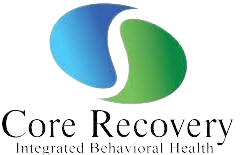Music therapy is an often underrated treatment for mental health disorders, addiction, and medical concerns. If you’re unfamiliar with music therapy, you’re not alone. Even if they’ve heard the term, many people don’t know what it entails or what benefits it can provide. We’ll help you learn a bit more about the healing power of music therapy.
What Is Music Therapy?
Music therapy is an evidence-based therapy involving the clinical use of music to address mental, emotional, physical, and social needs. It employs musical experiences such as:
- Singing
- Making/composing music
- Playing music
- Listening to music
- Talking about music
- Dancing
One of the best things about music therapy is that it’s customizable to you. Experimenting with different genres can help you find what works best for you. For instance, classical music can help to calm an anxious mind, while lo-fi may help you focus. If you feel comfortable doing so, you can also speak with a board-certified music therapist for additional help.
Creative vs. Receptive Process
If you decide to speak with a music therapist, they can provide additional help and guidance. They can also determine if you’ll benefit more from an active or passive approach (or a combination of the two). You actively practice music with the former, also known as the creative process. You play instruments, sing a song, compose music, or participate in other active activities.
With the passive approach (the receptive process), you listen rather than creating music. You may discuss how the music made you feel or the thoughts and ideas you had while listening.
Some people benefit from a combined approach. A mixture of creative and receptive processes may offer the best results.
Who Can Benefit?
Many people can benefit from music therapy, including those experiencing:
- Autism spectrum disorder (ASD), particularly the non-verbal autism spectrum
- Post-traumatic stress disorder (PTSD)
- Anxiety
- Depression
- Emotional dysregulation
- Substance use disorder
- Traumatic brain injuries (TBI)
- Insomnia
- Obsessive-compulsive disorder
- Alzheimer’s disease
- Physical health concerns such as chronic pain, heart conditions, or diabetes
- Addiction
Effects of Music Therapy
Music offers a few significant therapeutic benefits. Engaging with music can:
Stimulate Brainwaves
Music with a strong beat can directly influence your brainwaves. Faster beats generally sharpen your concentration, while slower ones induce relaxation or a calmer mental state.
Reduce the Damaging Effects of Stress
Chronic stress can eventually take a toll on your physical and mental health. It can lead to high blood pressure, heart disease, hyperthyroidism, diabetes, and more. Music can activate your relaxation response, which can help reduce or prevent the damaging effects stress can have on your mind and body.
Improve Your Mental State
Music can affect your mood, lifting your spirits and helping improve your mental health. Studies have shown that music therapy can be a beneficial element of a depression treatment plan. Some research shows that it’s most effective when combined with usual treatments such as medication or other therapies.
Assist With Sleep
Insomnia is a common concern for individuals with depression, anxiety, and other psychological disorders. Consistent poor sleep can increase the risk of heart disease, diabetes, high blood pressure, and more. It can also worsen depression. Research shows that music may provide a safe and easy way to improve sleep quality.
Cope With Physical Pain
They say music has healing properties, and research appears to support this. Several studies have shown how music may help people of all ages cope with physical pain. It may help:
- Healing from injuries
- Healing after surgery (in conjunction with post-operative care)
- Chronic pain management
- Labor and childbirth
Additional Benefits of Music Therapy
Other benefits of engaging with music include:
- Activating different regions of the brain that influence memory, decision-making, reward, and more
- Encouraging self-reflection
- Increasing motivation
- Developing healthy coping skills
- Reducing heart rate and blood pressure
- Strengthening motor skills
Music therapy can also create bonds, foster a sense of community, and fulfill social needs in group sessions.
A Musical Experience Can Soothe the Soul and Lift the Spirit
Music therapy can be a beneficial component of an overall treatment plan for mental health disorders, medical conditions, addiction, and more when combined with other treatments. A board-certified music therapist can design a customized plan that addresses your unique needs to get the most out of your sessions.
Are you seeking help for mental health, addiction, or trauma concerns? Core Recovery can help. Using evidence-based strategies, we provide individualized assessments, education, and treatment for trauma, addiction, and mental health conditions. Our highly-skilled care team can create a comprehensive treatment plan customized to your needs and goals to help you on your journey to a happier, more rewarding life.
At Core, we understand taking that first step can be hard, and we’re here for you when you’re ready. For more information or to schedule an appointment, visit us online or call us at
602-932-3446 today.






 In CA By O360®
In CA By O360®